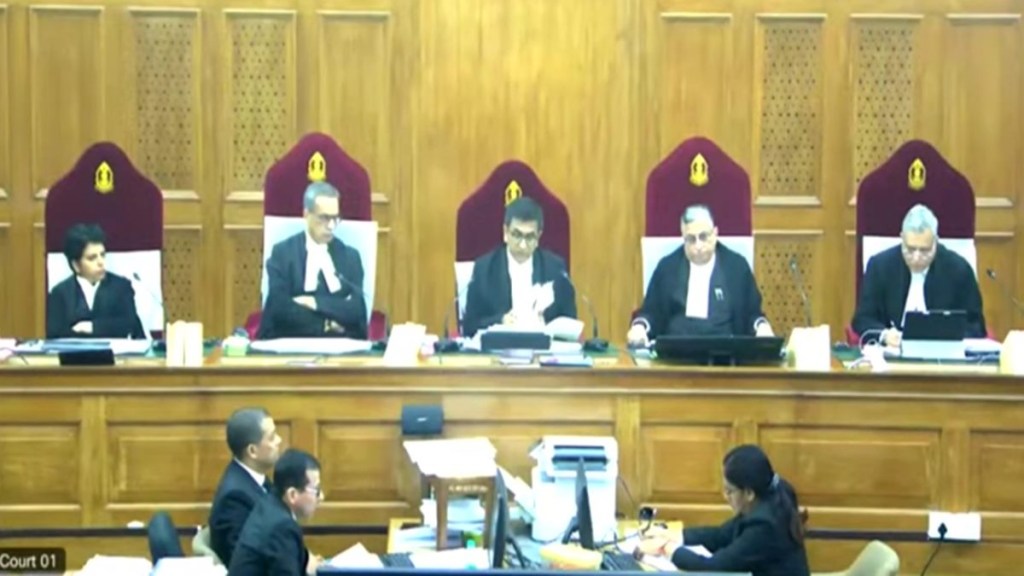Holding that the real power of administration must rest with the elected arm of the government, a Constitution bench led by Chief Justice of India DY Chandrachud on Thursday ruled in favour of the Delhi government over control on administrative services in the national capital and held that it must have control over bureaucrats, reported ANI.
The top court Constitution bench also comprising Justices MR Shah, Krishna Murari, Hima Kohli and PS Narasimha however, said that legislative power over services excludes public order, police and land.
As the hearing began, CJI Chandrachud said that the verdict was unanimous, and added that the apex court did not agree with Justice Ashok Bhushan in the 2019 split verdict where he held that Delhi government has no power at all over services.
In the Delhi government vs Lieutenant Governor row, the apex court decided on the scope of legislative and executive powers of the Centre and Delhi government over control of services in the national capital.
In May 2021, the case was posted before the Constitution bench after a request by Centre to send the matter to a larger bench.
In 2019, a two-judge bench of the apex court delivered a split verdict on the question of powers of the Government of National Capital Territory of Delhi (GNTCD) and Union government over services and referred the matter to a three-judge Bench. While Justice Ashok Bhushan had ruled the Delhi government has no power at all over administrative services, Justice AK Sikri, however, had said the transfer or posting of officers in top echelons of the bureaucracy (joint director and above) can only be done by the Central government and the view of the Lieutenant Governor would prevail in case of a difference of opinion for matters relating to other bureaucrats.
The bench which was hearing pleas on six matters had given a unanimous order on the remaining five issues except the control over services.
Since the AAP has come to power, governance in the national capital has also been a point of contention between the AAP and the Centre.
Prior to February 2019 judgement, a five-judge constitution bench of the Supreme Court had on July 4, 2018, laid down the broad parameters for governance of the national capital. In the landmark verdict, it had unanimously held that Delhi cannot be accorded the status of a State but clipped the powers of the LG saying he has no “independent decision-making power” and has to act on the aid and advice of the elected government.
It had restricted the jurisdiction of the LG to matters pertaining to land, police and public order and on all other matters, it held that the LG would have to act on the aid and advice of the council of ministers.
(With agency inputs)

